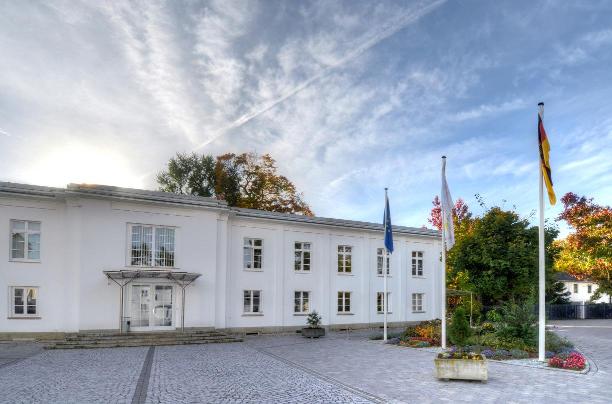Tasks & organisational structure

The Bundeskartellamt’s tasks
The Bundeskartellamt’s primary task and purpose is to protect free and fair competition in Germany. To achieve this, the authority may use the following tools in particular:
Enforcing the ban on cartels
Agreements between companies which prevent, restrict or distort competition are generally prohibited. These include agreements on prices, quantities, supply areas or customer groups (so-called hardcore cartels). The Bundeskartellamt prosecutes illegal cartels and can impose heavy fines on the persons and companies responsible.
More information on cartel prosecution
Merger control
Under certain conditions, mergers between companies are subject to merger control by the Bundeskartellamt. When examining a merger project, the Bundeskartellamt assesses the effects the merger will have on competition. If the merger threatens to significantly impede competition, it has to be prohibited or may only be cleared subject to conditions.
More information on merger control
Abuse control
Companies in a dominant position are exposed to little, if any, competitive pressure. Companies may have relative or superior market power even if they are not dominant. As a result, they enjoy a large scope of action when dealing with their suppliers, customers or competitors. Having a position of economic power is not prohibited per se, but abusing such market power is. The control of abusive practices by the Bundeskartellamt therefore functions as regulatory tool to compensate for a lack of competition.
More information on abuse control
In 2021 a new provision was added to traditional abuse control – Section 19a of the German Competition Act (Gesetz gegen Wettbewerbsbeschränkungen – GWB). This provision is aimed in particular at large digital companies and enables the Bundeskartellamt to take earlier and more effective action against abusive practices.
More information on the control of abusive practices of large digital companies
Reviewing the award of federal public contracts
The provisions of public procurement law ensure that public contracts are awarded under competitive conditions and through transparent and non-discriminatory procedures, adhering to the criterion of the most economically favourable offer. The Public Procurement Tribunals at the Bundeskartellamt are responsible for reviewing tender procedures carried out by the Federation or federal contracting authorities.
More information on the Public Procurement Tribunals’ task
Competition Register for Public Procurement
Companies which have committed serious economic offences are entered in the electronic Competition Register for Public Procurement. The Competition Register allows public contracting authorities to check in a single nationwide electronic search whether a company is entered in the Competition Register. Based on the result, the contracting authorities can then assess whether the company is to be excluded from an award procedure. In this way, the register plays an important role in combating economic crime.
More information on the Competition Register for Public Procurement
Consumer protection
The Bundeskartellamt can conduct sector inquiries into consumer protection issues, especially those raised by the digital economy, if there are any indications that consumer law provisions have been violated. As a so-called “amicus curiae” it can also make statements in court in civil consumer protection actions.
More information on consumer protection
Market Transparency Unit for Fuels
The Market Transparency Unit for Fuels continuously monitors the trade in fuels, collects information on fuel prices from approximately 15,000 petrol stations (across Germany) and passes it on to so-called consumer information services. Motorists can call up the prices from a number of information service providers online or via mobile apps.
More information on the Market Transparency Unit for Fuels
Control of abusive practices in the context of energy price relief measures
In response to soaring energy prices at the end of 2022 the Federal Government introduced price caps for electricity, gas and heat to ease the financial burden on private households and companies. In this context the Bundeskartellamt was assigned a completely new task: to examine whether any energy suppliers have unjustly claimed relief payments made available by the state.
Control of abusive practices in the context of energy price relief measures
Sector inquiries and remedies
The Bundeskartellamt conducts sector inquiries in order to gain a better insight into the competition situation in certain sectors if there are indications that competition in these sectors is restricted or distorted. The aim of the inquiries is to gain extensive information about the markets concerned.
The 11th amendment to the German Competition Act, which came into force in 2023, allows the Bundeskartellamt under certain conditions to impose measures to remedy a malfunctioning of competition which it has identified in the course of a sector inquiry.
More information on sector inquires and remedies
| The Bundeskartellamt – an independent authority |
|---|
| The Bundeskartellamt bases its decisions solely on competition criteria. The Decision Divisions are independent in their decisions and not bound by any instructions from the President of the Bundeskartellamt. The Federal Ministry for Economic Affairs cannot influence the Bundeskartellamt’s decisions either. |
Organisation chart
The Bundeskartellamt employs more than 400 people.

Here, you may download the organisation chart.
President and Vice President
The Bundeskartellamt is headed by President Andreas Mundt and Vice President Prof. Dr Konrad Ost. They are primarily responsible for organising internal processes and representing the authority to the public.
Decision Divisions
Decisions on cartels, mergers and abusive practices are taken by the Bundeskartellamt’s 13 Decision Divisions. Decisions are made by the chair of the respective decision division and two senior case handlers in accordance with the collegial principle and have to be majority decisions. Nine Decision Divisions are responsible for specific economic sectors. The 10th and 12th Decision Divisions deal exclusively with the cross-sector prosecution of cartels. In January 2023 the 11th Decision Division took on new tasks relating to the energy price relief measures. Another Decision Division deals with protecting competition and consumers.
An overview of the Decision Divisions, their remits and respective chairs can be found in the Bundeskartellamt’s organisation chart.
Federal Public Procurement Tribunals
The two Federal Public Procurement Tribunals located at the Bundeskartellamt examine whether public procurement law was observed in the award of large federal public contracts.
Competition Register for Public Procurement
The Competition Register lists companies which have committed relevant violations of law. Contracting authorities can or must consult the register to check whether a company must or can be excluded from an award procedure for having committed economic offences. Companies listed in the register for having committed certain economic offences can apply for “self-cleaning” to have their entry deleted prematurely. To achieve this, companies have to review their previous misconduct and establish preventive compliance measures for the future.
More information on the Competition Register for Public Procurement
General Policy Division
The General Policy Division advises the Decision Divisions on complex competition law and economic issues and represents the Bundeskartellamt in the decision-making bodies of the European Union. It is involved in competition law reforms at both national and European level and coordinates cooperation between the Bundeskartellamt and foreign competition authorities as well as international organisations. The General Policy Division is also in charge of press and PR work and assists the authority’s president. Another key aspect of the Division’s work is the ongoing digital transformation and the legal and economic issues associated with this.
Litigation and Legal Division
The Litigation and Legal Division represents the authority in court. It also acts as an amicus curiae to the Federal Court of Justice on a regular basis. The Litigation and Legal Division assists the Decision Divisions in cartel administrative and fine proceedings and advises them on complex legal matters. The Division also includes the Special Unit for Combating Cartels (SKK). The SKK assists the Decision Divisions in preparing, executing and evaluating dawn raids in cartel proceedings. It is also the contact point for companies wishing to apply for leniency in cartel proceedings.
Central Division
The Central Division provides cross-functional services to ensure the Bundeskartellamt’s operability and assists the various organisational units in carrying out their tasks. The Division includes Budget and Procurement, Internal Services, Building Management, IT, including IT Forensics and IT Security, HR and HR Development, Organisation, including Risk Management, and General Legal Matters.
Other competition authorities and institutions
Besides the Bundeskartellamt, there are also other authorities in Germany, Europe and worldwide which play an important part in protecting competition:
Federal Ministry for Economic Affairs and Climate Action
The Federal Ministry for Economic Affairs and Climate Action (BMWK) sets the competition policy framework.
Competition authorities of the Länder
The competition authorities of the Länder prosecute abusive practices and competition law infringements in cases where only their respective federal state is affected.
Click here for a list of all competition authorities of the Länder (in German only)
Monopolies Commission
The Monopolies Commission is an independent advisory body to the Federal Government on competition policy, competition law and regulation.
Bundesnetzagentur
The Bundesnetzagentur promotes effective competition in network-based markets (electricity, gas, telecommunications, post and railways).
European Commission
The European Commission’s Directorate-General for Competition is the Bundeskartellamt’s most important partner at the European level. It protects competition in the European Union by conducting merger control proceedings and prosecuting abuses of dominance and cartels that affect several countries.
Website of the European Commission’s Directorate-General for Competition
International cooperation
The Bundeskartellamt also maintains a close dialogue and cooperates regularly with the national competition authorities of other EU member states as well as with the national competition authorities of around 150 countries worldwide and various international organisations.
Key Facts
-
450
staff
-
35
million euro budget in 2023.
-
2.8
million euros in fines imposed.


